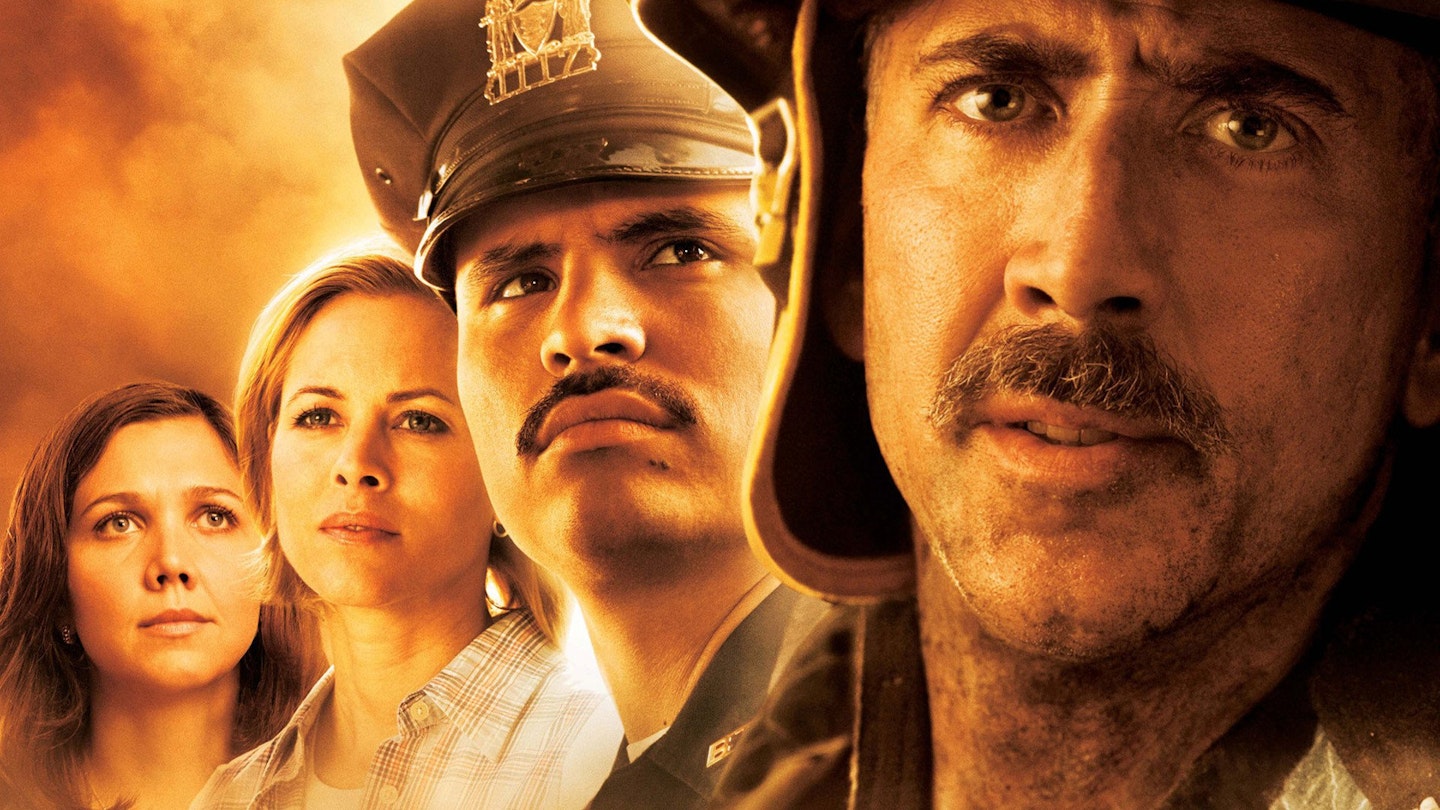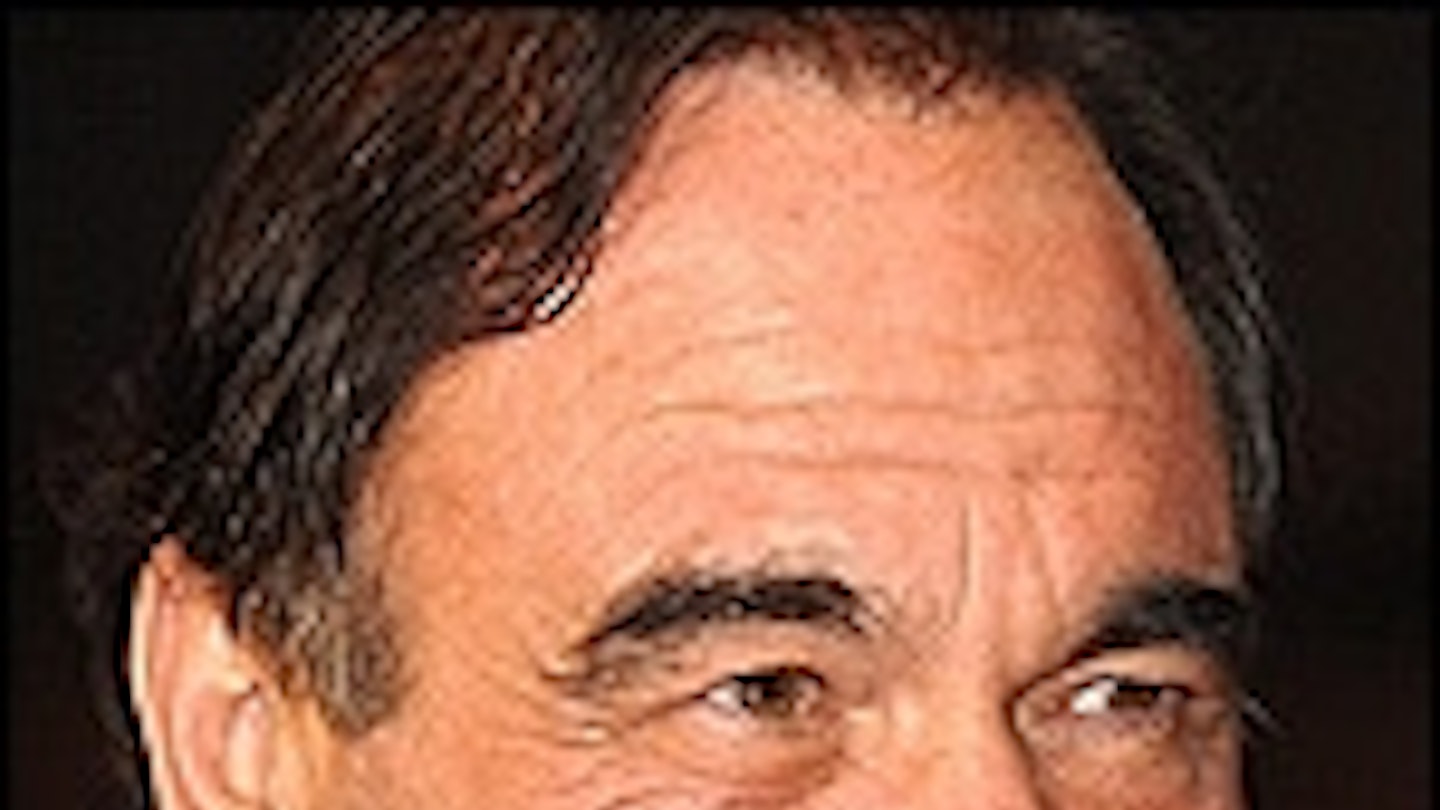It’s easy to forget that September 11, 2001, started like any other day. A sunny morning where ordinary people got out of bed, showered, looked in on their sleeping kids, and then went to work amid the purposeful bustle of New York’s rush hour. Oliver Stone wants us to remember that, commencing his latest exploration of America in crisis with an elegantly edited montage of daily routines; the simple rhythms of life. Loved ones, family ties, honest toil: see what was at stake? What is still at stake? After getting lost in Greece, Stone is back on home turf — his fragile dream of a golden America.
What happens next, foreshadowed quite literally by the outline of a passenger jet rippling across the face of a building, is forever imprinted on our minds from those movie-like television images that traced 9/11’s traumatic progress. Cinema, however, as Paul Greengrass revealed in United 93,
is able to take us through the protective shield of the screen and into the gut-wrenching immediacy of ‘event’. And here, tooled with seamless special effects and his gift for transforming history into pulsating cinema, Stone tosses us into the very centre of the maelstrom.
It’s a nightmare at once familiar and utterly alien, as a handful of transit cops, who hadn’t yet been able to help a soul, found a skyscraper descending upon them like a house of cards. Never has the sheer immensity of that concept — unimaginable tons of masonry let loose by gravity — been made so stunningly apparent. If nothing else, Stone fully translates the catastrophic enormity at 9/11’s Manhattan epicentre.
Two of those cops would awaken entombed in an underworld of twisted metal and shattered concrete lit by spurts of gassy flame, like something conjured by the lurid imagination of Hieronymus Bosch or Terry Gilliam. Reality had passed into
a realm of dark fantasy. But, as a rescue worker warns, it was “likely to come down like pick-up sticks” at any moment.
When the chaos is silenced for the claustrophobia of their entrapment, the film’s urgency becomes stifled. Cutting between the two men at the gates of death and the families trapped in a hell of uncertainty, Stone runs the risk of getting all mushy on us. To his credit, he largely keeps the sentiment at bay, viewing his protagonists — played with quiet force by Nicolas Cage and Michael Pena as the cops, and Maria Bello and Maggie Gyllenhaal as their pensive wives — as noble, blue-collar folk. But screenwriter Andrea Berloff is guilty of letting them sound like the Hallmark Channel. Or is it that the events of the day reached such a melodramatic pitch? Under such extremes, perhaps we do find solace in movie-talk.
If Greengrass was reaching for truth, a cut-glass form of vérité filmmaking in which the violent shudders of its recreation are almost painful, then Stone is pursuing the straightforward emotions of big cinema. It’s a much easier film to take than United 93, and a far less challenging one, but it may ultimately be more effective. You have to engage an audience with the familiar patterns of disaster movies and soap operas if they are to process the ocean of terror and sadness that lies beneath. This is a director with the sense that populism can carry ideas far wider than the fierceness of art.
In a work of considerable restraint and emotional directness, there are only slivers of Stone’s needling intensity and political paranoia — Bush appears only on a passing television screen. The provocateur of his prodigious past does emerge in the suggestion of a religious subtext (Pena’s Will experiences visions of Christ) and a glance toward the war to come (the Marine who unearths them did two tours in Iraq). And the ever-present hold of Vietnam can be felt in its hymn to brotherhood in suffering. But there are no grassy knolls, no industrio-military complexes, no mention of terrorism or conspiracy.
This is an Oliver Stone cautiously finding his way back into filmmaking — at the risk of over-reading things, it’s possible to see a connection between the movie’s place in the recuperation of America and his own recovery from the critical reception of Alexander. This is about honouring a value system he believes in — love, courage, humanism — and his conviction that it is the indomitable heart of the working man that defines America. Which could make it Stone’s most optimistic film.


